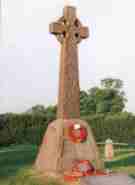
|
Arborfield
|
|
Memories
Related sites:
|
Prohibition or Moderation? From an article on July 21st 1917: Reading Town Hall was crowded on Monday evening, when a public meeting, convened by the Mayor at the request of some 2,000 persons, was held to consider the question of urging His Majesty’s Government to prohibit the use of grain in the manufacture of alcoholic liquors during such time as it is necessary to exercise frugality in the use of flour and the consumption of bread. [..] The proceedings, though lively, did not degenerate into rowdyism, and, owing to the tact exercised not only by the Mayor, but the champions of rival views, good-humoured banter, impartially bestowed, was he only real breach of decorum. The meeting ended in a fiasco, for so evenly divided were the two sections that neither the amendment nor the resolution was carried. A large number of ladies were present and they voted almost solid for prohibition.
In the 22nd January 1918 issue of the Reading Mercury was a report on a meeting promoting Prohibition, plus a lengthy article by ‘A Correspondent’ arguing the case against. At this time, the British Government had introduced strict Pub opening times in an effort to increase munitions production, but Canada and many states in the USA had gone much further. On Monday 12th January, the National Prohibition Educational Campaign hit Reading, with afternoon meetings in churches, and a heavily-attended evening meeting in the Town Hall. The Campaign had already conducted around 500 meetings elsewhere in the country. Many worthy Berkshire folk were listed as attending, but Arborfield’s Rector, Rev. J. A. Anderson, was conspicuous by his absence. He was prominent in the Church of England Temperance Society, which had funded a recreation hut at the Arborfield Remount Depot. The meeting was addressed by two key speakers, Lieutenant-Colonel C. Seymour Bullock, of the Canadian Army, and Professor J. A. Nicholls of Boston University, USA. Here’s how the newspaper reported their speeches: Lieut-Col Bullock:
Professor Nicholls:
The article from ‘Correspondent’ appeared on an earlier page in the newspaper. He spoke of the ‘futility’ of Prohibition, and of course history proved him right. He claimed that Prohibitionists in Britain tended to be 'Pacifists, cranks and faddists'. Among his points were:
|
| |
|
Any Feedback or comments on this website? Please e-mail the webmaster |